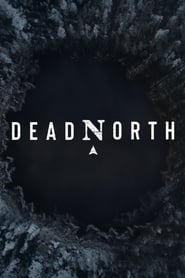
Ancient Apocalypse - Season 2 Episode 5 The Greenland Vikings
Led by Erik the Red, in 985 AD, an initial wave of Vikings from Scandinavia establish two successful outposts along the fjords of Southern Greenland – the ‘Eastern’ and ‘Western’ settlements. Numbering around 4,000 at their peak, they construct manor house and work the harsh terrain, to make it suitable for their European pastoralist life. They raise sheep, goats, and cattle; they trade furs, walrus-tusk ivory, and other arctic goods with Europe. For hundreds of years, they hold a quasi-monopoly on the European ivory trade, and almost all of it comes from walruses hunted by the Norsemen in Greenland. However, despite their commercial success, the Norse suddenly and mysteriously disappear from historical record at the start of the 15th century. The fate of the Norse will continue to bewilder archaeologists for centuries to come.
- Title: Ancient Apocalypse
- Year: 2023
- Genre: Documentary
- Country:
- Studio:
- Director: Kim Lask, Patrick Dickinson, Nicky Traversin, Justin Rickette
- Cast:
- Crew:
- Keyword:
- Runtime: 50 minutes
- IMDb: 7.00 / 10 by 5 users
- Popularity: 6.172
- First Air Date: Jan 01, 2021
- Last Air date: Dec 19, 2023
- Season: 2 Season
- Episode: 12 Episode
- Language: German, English
 Apple TV
Apple TV Google Play Movies
Google Play Movies Fandango At Home
Fandango At Home Netflix
Netflix Amazon Prime Video
Amazon Prime Video Amazon Video
Amazon Video MUBI
MUBI






































